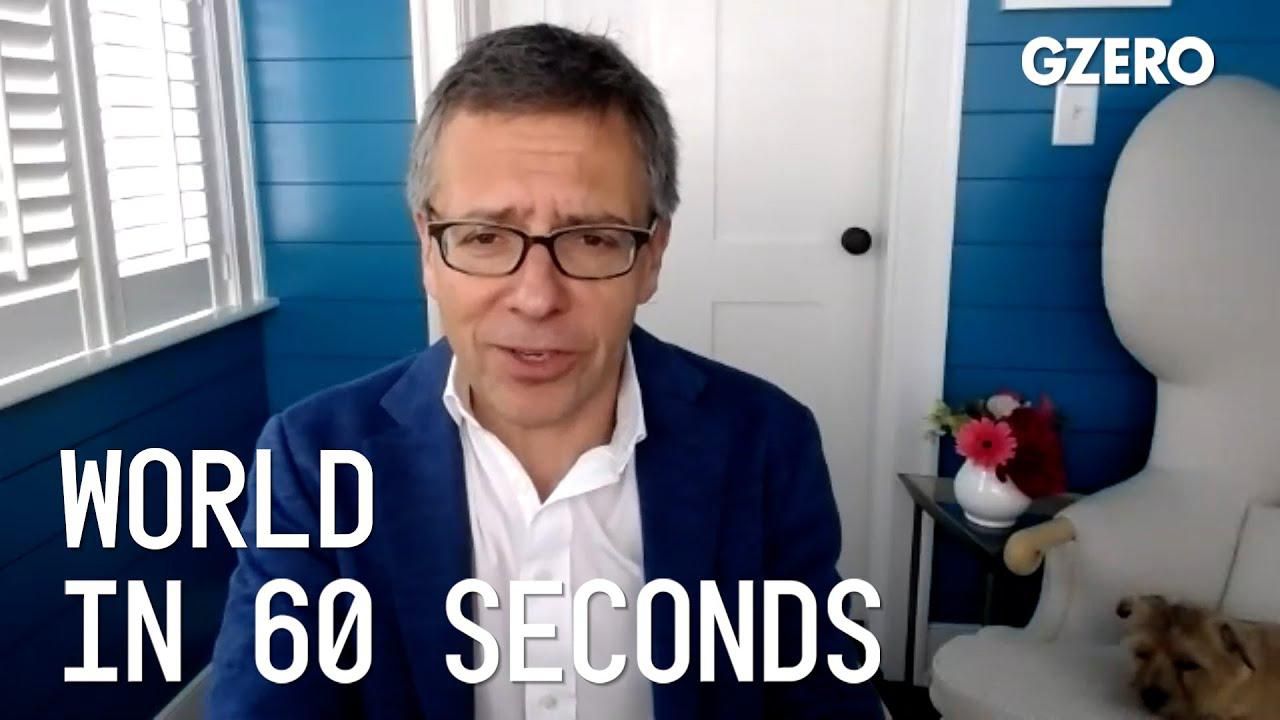Ian Bremmer shares his perspective on global politics on World In 60 Seconds (aka Around the World in 180 Seconds) with help from Moose the dog:
On the anniversary of George Floyd's murder, have race relations in the United States tarnished its reputation globally?
Sure it doesn't help. There's no question in the United States is one of the most racially divided and violent countries among advanced industrial democracies. And to the extent that the United States attempts to talk about human rights globally, it has a harder time doing that than other G7 countries would. And the Russians historically, and increasingly the Chinese, are trying to propagandize pretty hard by pointing out American hypocrisy. So I think it matters, but I would still argue that what the United States does internationally probably matters a lot more in terms of the way the US is perceived by those countries. So, no question it's important. And the legacy one year in, so far in the United States in terms of improving race relations, the state of that trajectory does not look great right now.
The EU levied sanctions against Belarus. Now what?
Well, the EU responded collectively and quickly, that we can definitely say, in terms of preventing Belarus' flag carrier from traveling to points in Europe, as well as stopping European airlines from flying through Belarus airspace, that's a good first move. They've said there'll be additional sanctions, let's see what they are. Let's see if they're significant, if they're against Belarusian oil or potash, where they make their real money. Let's see if they really hurt the economy, which would also have knock on effects for Russia, which exports a lot of energy into Belarus, they'd be unhappy about that. So we'll see. For the first 24 hours, I give the EU, the United States, the UK, all pretty strong marks for the way they've responded. But this is an unprecedented act of state criminality on the part of a very illegitimate Lukashenko, who should not be president, was not legitimately elected, and he's not going anywhere anytime soon. I want to see what next sanctions come from the Europeans. I also want to see the Putin meeting in Sochi with Lukashenko next week, very important.
Finally, with the US adding Japan to the, "do not travel list," what's the outlook on the Olympics?
Not great. Over 80% Of Japanese now say that they actually don't want the Olympics to go forward, that's a pretty staggering number. The Japanese prime minister says, "It's not up to me, it's the IOC. And the IOC has the decision. They say it has to go forward." Look, the prime minister has sovereignty, if he wants to cancel it, he can cancel it, though clearly there will be costs for the Japanese government, major economic costs, major political costs for the prime minister either way. It's really staggering to see just how much the Japanese have lagged every other advanced industrial democracy in terms of a vaccine rollout. And, and I still think there's a good chance they do end up canceling this, but it's going right down to the wire. And my heart goes out to everybody involved, the Japanese people, the athletes that have been prepping; this is not the kind of Olympics that you really want to be hosting.
More For You
In this episode of GZERO Europe, Carl Bildt examines how an eventful week in Davos further strained transatlantic relations and reignited tensions over Greenland.
Most Popular
In this Quick Take, Ian Bremmer addresses the killing of Alex Pretti at a protest in Minneapolis, calling it “a tipping point” in America’s increasingly volatile politics.
30,000: The estimated death toll in Iran during the protests at the start of the year, per local health officials, underscoring the scale of the Islamic Republic’s crackdown on its own citizens.
